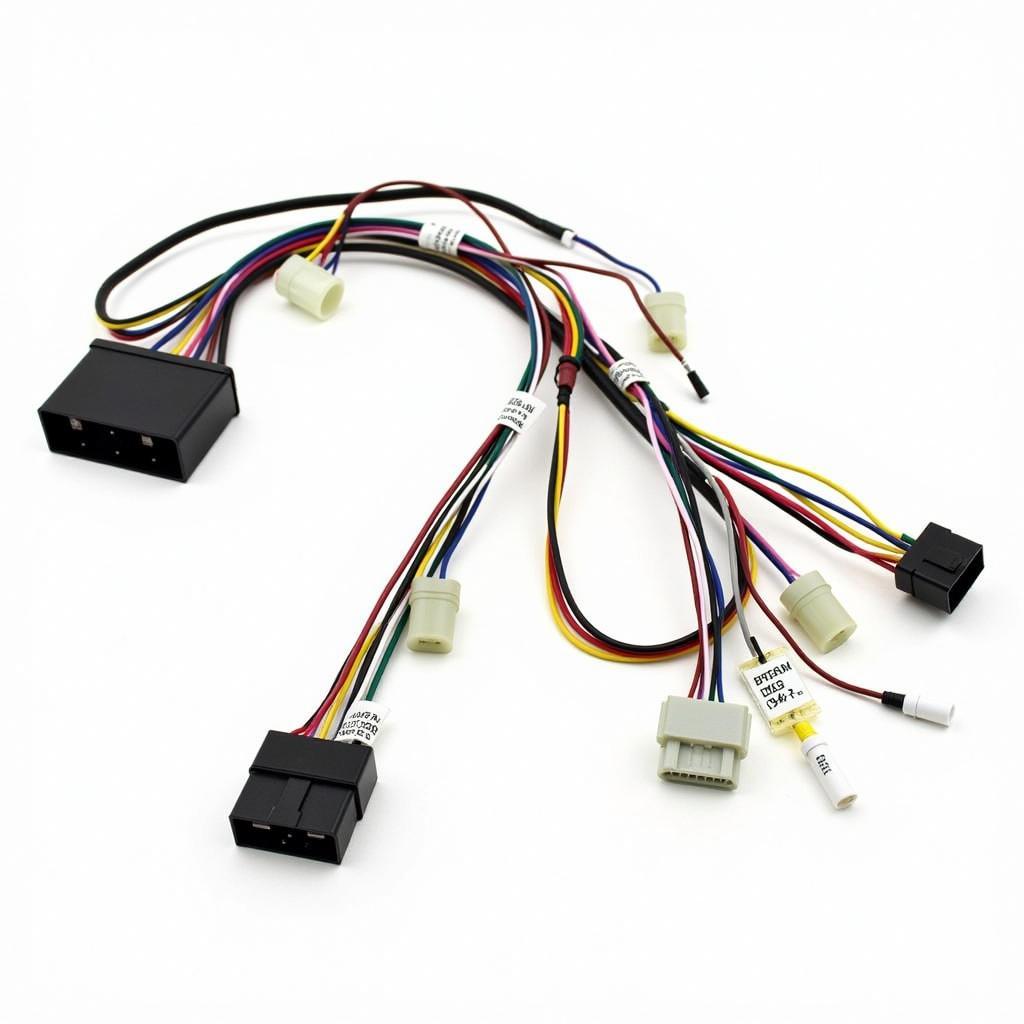A rat problem in your car engine can be more than just an annoyance – it can lead to costly repairs and even safety hazards. These rodents are notorious for squeezing into tight spaces and causing damage by chewing on wires, hoses, and other vital engine components. This comprehensive guide will help car owners, mechanics, and technicians understand the causes, identify the signs, and implement effective solutions to tackle a rat infestation in car engines.
Did you know that rats can enter openings as small as a quarter? This means they can easily find their way into your car’s engine bay, especially if you park in areas where rodents are common.
Why Do Rats Target Car Engines?
Car engines, especially those inactive for extended periods, offer an attractive shelter for rats, providing warmth, protection from the elements, and a relatively safe haven from predators. Additionally, the abundance of food sources in and around cars, such as spilled food crumbs, trash, and nesting materials, further encourages rodents to take up residence.
Telltale Signs of Rats in Your Car Engine
Early detection is crucial for minimizing damage and reducing repair costs. Here are some common signs indicating a potential rat infestation:
- Gnaw Marks: One of the most obvious signs is gnaw marks on wires, hoses, insulation, and plastic components.
- Droppings: Rat droppings, small, dark, and pellet-shaped, may be found near the engine, under the hood, or on top of the engine cover.
- Nesting Materials: Rats often use shredded paper, fabric, insulation, and other soft materials to build nests in engine bays.
- Footprints and Tail Tracks: Look for small footprints or tail drag marks in dusty areas around the engine.
- Unusual Sounds: You might hear scratching, scurrying, or squeaking sounds coming from your car, especially at night when rodents are most active.
- Electrical Issues: Damaged wiring can lead to a variety of electrical problems, such as difficulty starting the car, malfunctioning lights, and dashboard warning lights.
- Overheating: A chewed coolant hose can cause engine overheating and severe damage if not addressed promptly.
If you notice any of these signs, it’s essential to address the issue immediately before it escalates.
Effective Solutions for Eliminating Rats from Your Car Engine
Dealing with a rat problem in your car engine requires a multi-pronged approach. Here are some effective solutions:
1. Thorough Engine Bay Cleaning
A clean engine bay is less appealing to rats. Remove any food debris, nesting materials, and accumulated leaves or dirt. Use a degreaser and a pressure washer (with caution around electrical components) for a thorough cleaning.
2. Natural Rat Repellents
Consider using natural rat repellents to deter rodents from your car. Placing cotton balls soaked in peppermint oil, clove oil, or ammonia-soaked rags near the engine can effectively repel rats due to their aversion to strong scents.
3. Ultrasonic Rodent Repellers
Ultrasonic rodent repellers emit high-frequency sound waves that are unpleasant to rodents, deterring them from entering your car. While the effectiveness of these devices is debated, some car owners have found success using them.
4. Traps
Traps can be an effective method for removing rats that have already infested your car engine. Snap traps, glue traps, and live traps are commonly used options. When setting traps, place them near areas where you’ve observed rodent activity or signs of infestation.
5. Rodenticides (With Caution)
Rodenticides, or rat poisons, are highly effective in eliminating rat infestations. However, they should be used with extreme caution and placed in tamper-resistant bait stations to prevent accidental ingestion by children, pets, or non-target animals.
“Using rodenticides requires careful consideration,” cautions Dr. Emily Carter, a certified entomologist specializing in urban pest management. “It’s crucial to select the right type of bait and placement to minimize risks to other animals or the environment.”
6. Professional Pest Control
If the infestation is severe or you’re uncomfortable handling the problem yourself, contact a professional pest control company. They have the experience, knowledge, and specialized tools to effectively eliminate rat infestations and prevent future occurrences.
Preventing Future Rat Infestations
Prevention is key to avoiding costly repairs and headaches associated with a rat problem in your car engine:
- Park Smart: If possible, park your car in a garage or well-lit area, away from potential rodent harborage points like trash cans, woodpiles, or overgrown vegetation.
- Seal Entry Points: Inspect your car for any potential entry points and seal them using wire mesh, steel wool, or hardware cloth. Pay close attention to areas where wires and hoses enter the cabin.
- Keep it Clean: Regularly clean your car, both inside and out, removing food crumbs, trash, and potential nesting materials.
- Motion-Activated Sprinklers: Consider installing motion-activated sprinklers in your driveway or parking area. These can deter rodents and other animals from approaching your car.
FAQs about Rat Problems in Car Engines
Q: Can rats damage my car’s engine beyond repair?
A: While rare, extensive damage from rats chewing on wiring harnesses, hoses, and critical engine components could potentially lead to irreparable damage. However, early detection and prompt action significantly reduce the risk of severe and costly damage.
Q: Does car insurance cover rat damage?
A: Coverage for rat damage varies depending on your specific insurance policy. Some comprehensive coverage plans may cover repairs, while others might not. Contact your insurance provider to verify your coverage details.
Q: How often should I check my car for signs of rats?
A: It’s advisable to inspect your car for signs of rodents at least once a month, especially during colder months when they’re more likely to seek shelter. Pay extra attention if you park in areas prone to rodent activity.
Conclusion
A rat problem in your car engine is a serious issue that can lead to costly repairs, safety hazards, and overall vehicle malfunction. By understanding the causes, recognizing the signs, and implementing the solutions outlined in this guide, you can effectively address rat infestations and prevent future occurrences.
If you suspect a rat infestation in your car engine, don’t delay! Contact AutoTipPro at +1 (641) 206-8880 or visit our office at 500 N St Mary’s St, San Antonio, TX 78205, United States. We’re here to provide expert advice and help you find the best solutions for your specific needs.






Leave a Reply